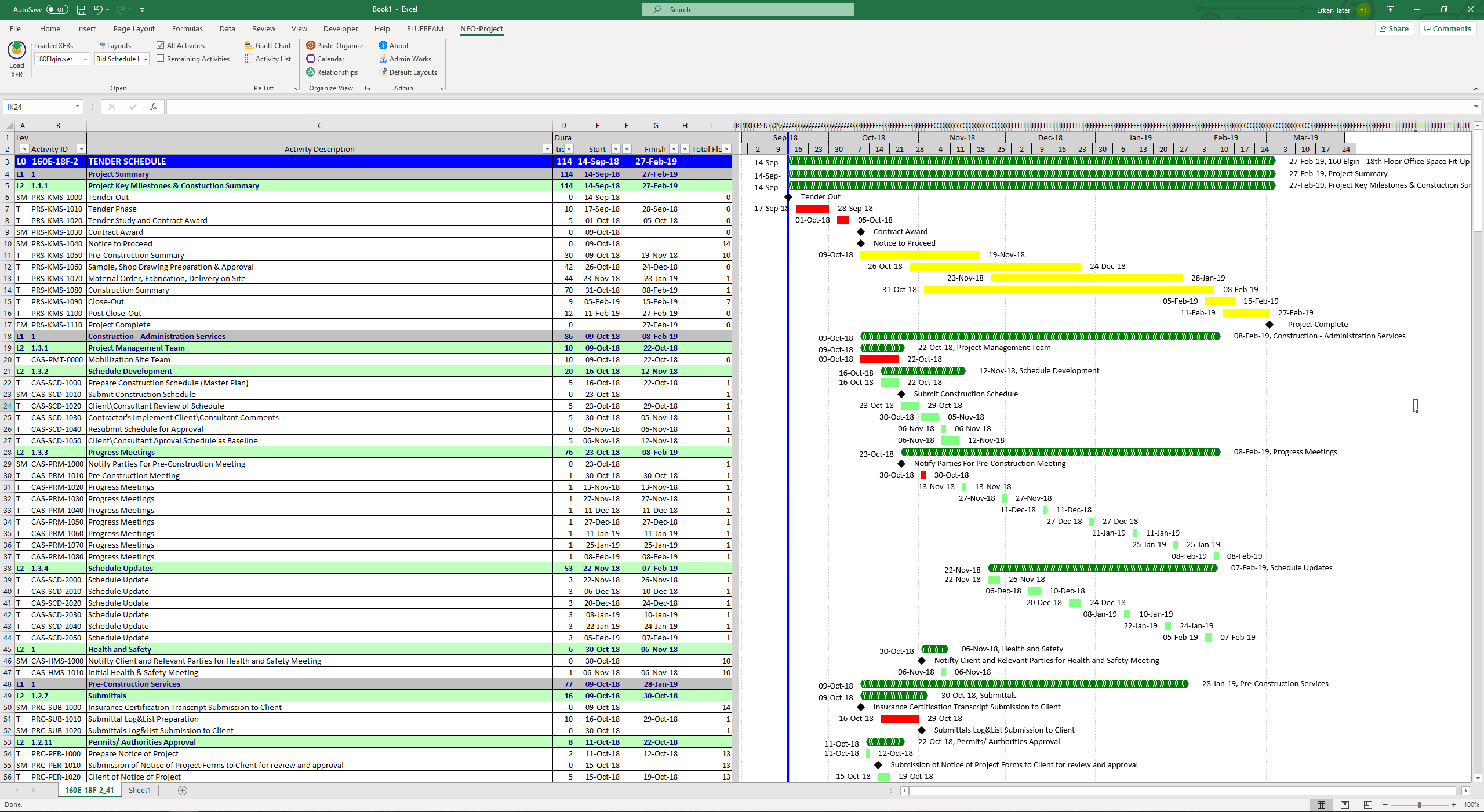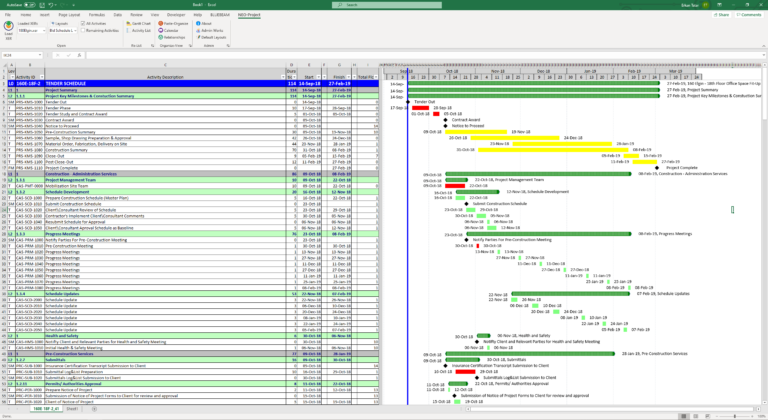Challenges in Information Collection for Schedule Updates
Challenges for Schedule Updates
- Unforeseen Site Conditions:
- Construction sites are dynamic environments. Unexpected issues like soil conditions, utility conflicts, or hidden obstacles can disrupt the original schedule.
- Solution: Regular site inspections and collaboration with field teams help identify these challenges early. Adjust the schedule accordingly and communicate changes promptly.
- Scope Changes:
- Scope modifications are common during construction. New requirements, design alterations, or client requests impact the project timeline.
- Solution: Maintain a change log and assess the impact of scope changes on the schedule. Prioritize critical tasks and adjust dependencies accordingly.
- Adverse Weather:
- Weather conditions affect outdoor work. Rain, snow, extreme heat, or cold can delay activities.
- Solution: Monitor weather forecasts and build flexibility into the schedule. Plan indoor tasks during inclement weather and adjust timelines as needed.
- Resource Availability:
- Labor shortages, material delays, or equipment breakdowns disrupt the schedule.
- Solution: Regularly update resource availability data. Collaborate with procurement teams to ensure timely material deliveries. Consider alternative resources if needed.
- Communication Gaps:
- Inaccurate or delayed information flow between project stakeholders hinders schedule updates.
- Solution: Implement robust communication channels. Regularly collect progress reports from field teams, subcontractors, and suppliers. Use digital tools for real-time updates.
- Data Accuracy and Trust:
- The information used for schedule updates must be reliable. Trustworthy data ensures accurate adjustments.
- Solution: Rely on standardized reporting formats. Verify data against ground truth and cross-check with multiple sources.
- Lack of Historical Data:
- New projects lack historical performance data, making it challenging to predict delays accurately.
- Solution: Document project-specific data for future reference. Learn from past experiences and continuously improve data collection processes.
Strategies for Effective Information Collection
- Automate Data Collection:
- Leverage construction management software to automate data capture. Real-time updates reduce manual effort and enhance accuracy.
- Collaborate Across Teams:
- Engage field teams, subcontractors, and suppliers in data collection. Their insights provide a holistic view of project progress.
- Regular Progress Meetings:
- Conduct frequent progress meetings to discuss updates, challenges, and potential risks. Address discrepancies promptly.
- Use Leading Indicators:
- Rather than relying solely on lagging indicators (past performance), focus on leading indicators (predictive measures). Identify trends early and take proactive steps.
- Document Lessons Learned:
- Record challenges faced during data collection and schedule updates. Use these insights to refine processes for future projects.
Remember, accurate information collection is the foundation of effective project management. By addressing these challenges head-on and implementing smart strategies, you’ll keep your construction schedules on track and deliver successful projects!
The construction industry, often characterized by its reliance on conservative approach on processes, has been slow to embrace technology. But times are changing, and the NEO-Project Toolbox is leading the charge. You have to check how this powerful Excel Add-in is revolutionizing project management. Ready to transform your project management experience? Create a free account and explore the NEO-Project Toolbox. Whether you’re a corporate team or an individual project manager, this toolbox is your secret weapon.
Sign Up Now and unlock efficiency like never before!





